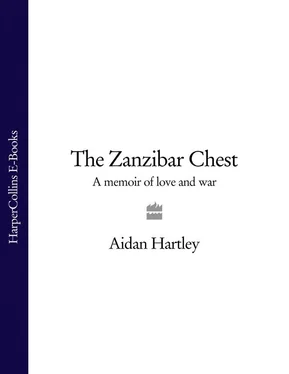On my flight back to Rwanda I recognised the man who had guided me during the genocide. To be certain of it I looked at his right hand and, sure enough, he had no thumb. It had been shot off in the days when he used to wear a red beret and ragged fatigues. Now he appeared in a sharp grey suit carrying a briefcase. As he walked down the aisle past me, our eyes met and his face brightened.
‘Frank.’
We sat together. Frank, I was reminded from years ago, could talk non-stop. He was one of those men who has suffered immensely, but enjoys the fact that he has lived to tell you all about it. As we flew back to Rwanda, he spoke of battles, massacres and dreams. He recalled the time we marched together on a journey that would haunt us forever. Listening to him speak, I was transported back to those terrible days and felt dizzy to see that here we were, suspended in ether above Africa and toasting each other with little bottles of whisky served up by air stewardesses.
I descended from the aircraft and felt against my face a blast of hot air carrying familiar smells. I found the faint marks of a mortar bomb impact on the runway tarmac as I walked to the terminal. Inside, the soap statue of the gorilla was back in his glass case. The roads edged by brick red earth and low huts the same. The ‘Guinness is Good for You’ advertisements the same. Guava trees the same. Faces the same. The same, when the truth is that it was changed. Only in our minds, myself, Frank and all the other survivors, did we see a ghost town superimposed on the real city of today. But there were no piles of severed hands by the roadside. No monkey in a bow tie and tuxedo perched in a tree.
I checked into the same room at the Meridien hotel where we had slept under our flak jackets. I tried to remember. But it was as if nothing had happened. The hotel was back to being what it had been before the fighting. A hotel.
The pool terrace was the place to be these days. This is where the Patriotic Army top dogs and intelligence chiefs drank beer all afternoon. I sat, maintaining a smile, nursing a cold beer, looking over towards the swimming pool. I remembered that the pool had been empty in the war. The UN troops had used it as their water supply when the taps ran dry and they drank every drop. Today, as I watched from the terrace, the Tutsi children of the Patriotic Army leaders, their plump black bodies glistening with wet, were leaping about in a game of water volleyball. For years I had lived in my own museum of horrors in which the Meridien swimming pool had remained empty. Meanwhile in the real world the kids were playing in the chlorinated water as white-gloved waiters carried trays of ice-cold beers to the war veterans and their wives.
From Kigali I drove to Goma, where Lazarus is buried in a mass grave somewhere. I was on the back of a motorbike taxi when two policemen in banana yellow helmets stopped us and shook down the driver for a bribe. Further up the road that morning Hutu militias had ambushed a truck and killed three traders. The sun was beating down. The volcano on the horizon was smoking, ready to erupt any moment. I stood there watching a passing Congolese girl with hair braided into six-inch spikes and crowds of hustlers striding along in garish pyjama suits. Bicycle taxis with tinsel wound into the spokes. Guerrillas in mirror shades with radios clamped to their ears. And my cell phone rang. I answered and it was my wife Claire, calling from home. ‘I love you,’ I said and she replied, ‘I love you.’ She told me that at that very moment, when I picked up and she heard my voice on the phone, our baby daughter kicked inside her womb.
At any one time we had six wars, a couple of famines, a coup d’état, and a natural disaster like a flood or an epidemic or a volcanic eruption, all within a radius of three hours’ flight from Nairobi. You could take off at sunrise, commute to witness a battle or hear a starving man breathe his last and be back home by nightfall, in time to file a story, take a shower, then hit the Tamarind restaurant downtown for mangrove crab and Stellenbosch. Or you were dropped off, watching the plane roar away in a cloud of red dust, and you were gone for weeks, out of contact and a thousand miles from help. And each time you returned home after a trip like that for a few days you were as mad as Gulliver talking to his horses.
These were the years when we hitched rides on dawn flights carrying cargoes of blood plasma, guns or baby food to bush airstrips. Flights on battered Antonovs, with the word NASDROVJE! – Cheers! – emblazoned on the nose of the fuselage. Flown by Russian crews with the Mongoloid faces of Soyuz cosmonauts from my boyhood stamp collection, their breath sour from drink, on three hundred dollars a month, with girls thrown in, running weapons in the orbit of modern African wars. I recall flights when the passengers sat amongst boxes of toothpaste and grenades, cement and drums of gasoline. I recall sitting next to a little girl in a frilly pink dress and bonnet and ivory armlets, clutching a yellow-haired Caucasian doll as, below us, broccoli-like black forests stretched for a thousand miles, unbroken and empty.
I’d climb aboard the Cessna at first light, in my mind kissing the tarmac goodbye like the pope in reverse. The pilot throttled up, mumbled into his microphone, neck muscles bunching like a bullfrog. On takeoff I used to recite the Lord’s Prayer over and over until I got stuck on a line like a mantra – ‘deliver us from evil, deliver us from evil, deliver us from evil’ – as the earth fell away. Ten minutes out from Nairobi and the great gate of clouds opened out, with the pillars of Mount Kenya to the north and Kilimanjaro to the south. Our path led over patchwork peasant lands, sequinned with tin hut roofs glinting in the sun. Further out were empty, arid plains, broken up only by smooth brown kopjes and the capillaries of seasonal streams that dissipated into stains of green against the ochre and white desert. Look down and you’d see herds of goats and camels scatter in unison like shoals of fish. Even in this modern day, out here whole grid squares on the tactical pilotage charts were half blank and marked with the words RELIEF DATA INCOMPLETE. They might as well have written ‘here be monsters’. The flights themselves scared the hell out of me before we’d even landed in the eye of another crisis. ‘I repeat, six souls on board, do you read…?’ Often there was no answer. The pilots called Sub-Sahara’s airspace ‘the cone of silence’. I couldn’t fully appreciate the idea until the day I entered a control tower following a battle at an airport and saw brain, hair and skull fragments all over the walls. Every time we flew into a cloud I’d hold my breath and think of all the UFO junk we might be on a collision course with: ghost flights, alcoholic Ukrainians shifting cargo, Zimbo arms smugglers, overflying tourist charters, medevacs, drug couriers, patrolling MiGs. There was the tropical weather too, in which minutes after observing clear skies up ahead one saw elevating thousands of feet up out of thin air a black storm with the head of a sledgehammer.
On those flights I’d look down from the sky at takeoffs and landings and see the silhouette of our little aircraft ripple over pulverized cities, refugee camps, the acetylene-white flashes of anti-aircraft fire and countries rich only in lost hopes and broken dreams. What comes to mind when I think of that time in my life are the words of Isaiah 18, which I’d read in the Gideons Bibles I’d found in dozens of seedy hotel rooms where I spent so much of my life on the road; ‘Woe to the land shadowing with wings, which is beyond the rivers of Ethiopia…Go, ye swift messengers, to a nation scattered and peeled, to a people terrible from their beginning hitherto; a nation meted out and trodden down.’ That passage makes me think of my circle of friends, the journalists I knew in those years. We were like the swift messengers in Africa.
Читать дальше












